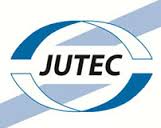EN 1731 is a European standard that specifies the requirements for face shields designed to protect against various hazards, particularly mechanical ones. These face shields are essential safety equipment, providing reliable protection for the eyes and face. In this article, we’ll explore the key aspects of EN 1731 and understand its significance in ensuring safety in professional and industrial settings.
1. Material Specifications
EN 1731 outlines material specifications, ensuring that face mesh protectors are constructed from materials that can withstand mechanical hazards. These materials are chosen for their durability and ability to provide effective protection against impacts, flying debris, and other potential dangers.
2. Design Requirements
The standard also defines design requirements for face shields, ensuring that they provide adequate coverage for the eyes and face. Proper design is crucial to ensure that the protector offers comprehensive protection without hindering the wearer’s vision or comfort.
3. Performance Standards
EN 1731 sets performance standards for face mesh protectors, specifying the level of protection they should provide. This includes protection against impacts, such as those caused by flying objects, projectiles, or other mechanical hazards. Meeting these performance standards is essential to ensure that the protector effectively safeguards the wearer.
4. Test Methods
The standard includes detailed test methods that manufacturers must follow to assess the performance of their face mesh protectors. These tests help ensure that the protectors meet the required safety standards. Common tests may include impact resistance tests and tests for the integrity of the mesh material.
5. Reliable Protection
Face mesh protectors that conform to EN 1731 are known for their reliability in protecting against mechanical hazards. They are particularly suitable for professional use in industrial and work environments where the risk of flying debris or other mechanical dangers is high.
6. Industrial Applications
EN 1731 compliant face shields are commonly used in various professional and industrial applications, including construction, manufacturing, forestry, and agriculture. They provide essential protection for workers exposed to potential hazards, reducing the risk of eye and face injuries.
7. User Comfort
Aunque la seguridad es primordial, EN 1731 also considers user comfort. Properly designed face shields are comfortable to wear for extended periods, ensuring that workers can perform their tasks effectively without discomfort.
En resumen, EN 1731 is a crucial European standard that sets the requirements for face mesh protectors used in professional and industrial settings. These protectors are essential for safeguarding the eyes and face against mechanical hazards, making them a vital part of personal protective equipment. Choosing EN 1731 compliant face shields ensures that workers are adequately protected in environments where mechanical dangers are prevalent, promoting safety and reducing the risk of injuries.
 3M
3M Ansell
Ansell Dellta Plus
Dellta Plus Drager
Drager edelrid
edelrid Honeywell
Honeywell JUTEC
JUTEC lakeland
lakeland MSA
MSA Cerdo nuevo
Cerdo nuevo Weldas
Weldas